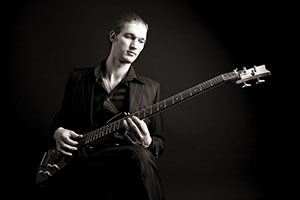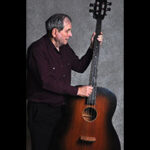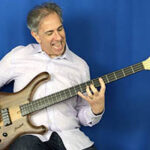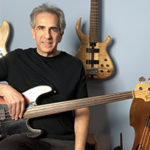If you’re always “under construction,” you’ve already won
By Jon Liebman
April 28, 2023
When learning bass, it seems like everyone is taught pretty much the same stuff: Learn your scales, know your modes, build your technique, get your theory down… The list goes on.
The big question, of course, is…
Then what?
I got to thinking about it during a recent conversation with Yoseph Elkaim, published as this week’s FBPO interview.
Yoseph is quite an interesting guy. He’s worked as a lawyer, a banker, and chief of intelligence of cybercrimes for the U.S. Department of Defense.
He’s also incredibly passionate about bass.
Armed with a genuine love of the instrument – not to mention a whole lot of guts and non-stop drive – Yoseph essentially bulldozed his way into the music world, collaborating with the likes of Bob James, Vanessa Williams, Bryan Adams, Duck Dunn, Diana Krall, and The Cranberries.
Music means different things to different people
When the subject comes up on how best to approach learning bass, Yoseph speaks from his heart.
“I think it’s different things to different people,” he says.
One story that stands out for Yoseph is the time he found himself doing a gig with organist Joey DeFrancesco, whom he describes as “the first person to ever, ever give me the rite of passage.”
Up to that point, Yoseph had always thought of himself as “the worst soloist ever.” So when Joey told him to take a solo, naturally he panicked.
Nobody comes to hear you play theory
Trying to calm him down, Joey said:
“There’s no wrong solo. It’s what’s right for you. Nobody comes to hear you play theory. They come to hear you play your interpretation of the music. Theory’s a tool that you have in the toolbox that you tap into when you’re stuck.”
For Yoseph, it was like having a weight lifted off his shoulders. It was almost as if he’d discovered the secret of life.
The new mindset helped him tremendously with his overall musicianship. It helped clarify what he was trying to do and how to go about getting the best results possible.
It’s okay to be inspired by great bass players. But…
Most of us have had major influences that made us want to be better bass players. Names like Charles Mingus, Stanley Clarke, and John Paul Jones come up a lot, along with countless others.
Regardless of who those influences are, there’s a balance that needs to be struck between learning to play like our heroes and remaining true to ourselves.
“Too many people effectively look at each other horizontally and try to make comparisons,” Yoseph says. “‘Oh, I’m not (Richard) Bona. Oh, I’m not Will Lee. Oh, I’m not Pino (Palladino).’
“Do you think Pino spends time all day thinking about how he’s not Anthony Jackson?” Yoseph asks. “No. He’s just vertically focused on what he can bring to the song.”
Age is irrelevant, as long as the passion is there
The mindset applies to anyone learning bass, regardless of age. In fact, here at For Bass Players Only, most students are in their 50s, 60s, and 70s. To those people especially, I say: Don’t lose sight of why you want to learn bass.
It doesn’t matter how old you are. You’re not trying to be another Jaco. You’re not trying to be another Victor Wooten. You want to make music and have fun.
Maybe that means playing classic rock riffs or blues shuffles. Or maybe it’s walking bass or R&B. Whatever it is, go for it. Learn bass. Have fun.
As Yoseph puts it, “If you’re 50, if you’re 60, if you’re 70, and you’re passionate about the instrument and you’re passionate about what you’re doing, as long as you’re doing it with conviction, you’re doing it with a degree of honesty.”
And with that honesty you’ll find yourself getting to the end result quicker and more enjoyably.
It’s not one size fits all
As Yoseph says, music means different things to different people.
“It’s not one size fits all,” he explains. “You’re going to find people that are really passionate and do it for the love of the art. You’re going to find other people who are doing it because they have what to compare.”
Can you guess which approach he likes better?
“I find that the people that play for the love of the art don’t burn out,” he says. “You’re doing it because you love the art form. That’s always been an ethos that works well for the people that I look up to in a meaningful way.”
In the end, it’s about maintaining a healthy approach to learning bass with the singular goal of wanting to experience the joy and the pleasure of making music.
As Yoseph puts it, “I think that if you go into that willing to learn and you go in with the mindset that you’re always under construction, you’ve already won.”
How about you?
Want to learn bass? My lessons and courses in the Bottom Line Club will keep you grounded and focused, always with the mindset of learning to grow and thrive in the healthiest way. Find out all about joining here.






Mindset versus passion or the same thing? Debatable.
In my personal opinion only, I agree that age is irrelevant but the passion aspect is everything and this goes for ANY instrument. If you love to do something and are passionate about it, do it. Again, in my personal opinion your mindset can be dictated by your passion or not depending on an individual’s M.O. The mindset can motivate and inspire practice and dedication. Without the passion and only in my opinion reiterating, a mindset can be dedicate to only technical aspects which anyone can learn. There are records of people reading books and passing theoretical exams. This has nothing to do with passion. Passion is everything from where I sit.
If any information is out there, it can be learned with dedication. dedication generated by passion I believe holds the greatest joy and benefits. Cheers.
Good points, Andrew. Thanks.